The PEN Ten: 12 Days of Writing Advice
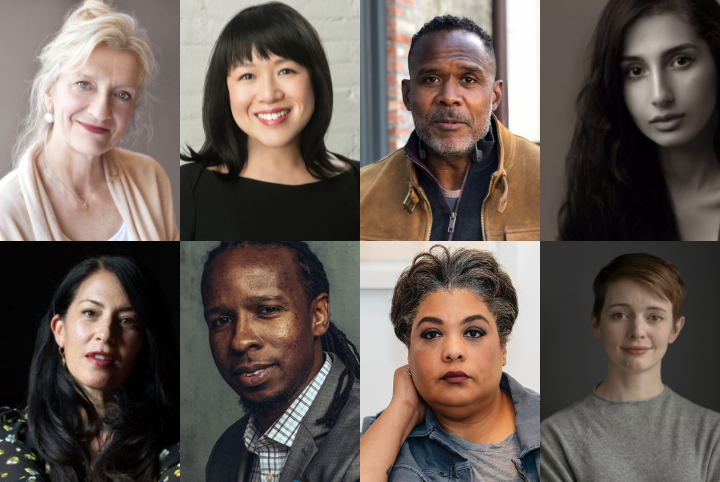
PEN America has been in conversation with authors, poets, and other artists from its inception. This holiday season, we are sharing 12 pieces of wisdom we’ve received over the years.
Elizabeth Strout, author of Lucy By the Sea, on enduring rejection
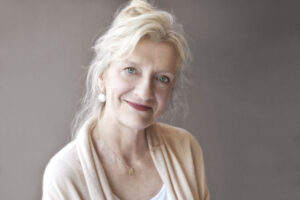
Well, it’s not fun. There’s nothing fun about a rejection. Ever, ever, ever. And then just forget about it. Keep going. Just keep going forward, and keep writing your best work that you can at the time that you’re writing. Just make it as good as you can and just continue to do that. You have to swallow the rejection, but just keep going. Keep going.
Jessamine Chan, author of The School for Good Mothers, on frustration in writing
 I hope it’s OK to admit that the entire process is frustrating and requires daily, hourly pep-talks to self. One frustration that comes up all the time is simply concentrating. My concentration was no better than anyone else’s during the last few years. I overcame my immense distraction during lockdown by having really great books on hand to fill my mind with gorgeous prose (The Price of Salt by Patricia Highsmith, Orange World and Other Stories by Karen Russell) and trying not to participate in social media too much.
I hope it’s OK to admit that the entire process is frustrating and requires daily, hourly pep-talks to self. One frustration that comes up all the time is simply concentrating. My concentration was no better than anyone else’s during the last few years. I overcame my immense distraction during lockdown by having really great books on hand to fill my mind with gorgeous prose (The Price of Salt by Patricia Highsmith, Orange World and Other Stories by Karen Russell) and trying not to participate in social media too much.
James Hannaham, author of Didn’t Nobody Give a Shit What Happened to Carlotta, on writing about social justice issues
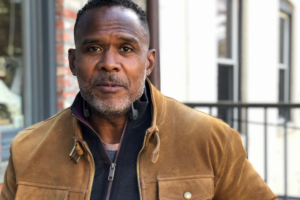 Don’t let a message get in the way of the truth, even when that truth is embarrassing, counterintuitive, or unpopular. I find myself increasingly bothered by people whose main message is to convince people of BIPOC humanity and, like, worthiness. First of all, who you talkin’ to? Not me, I been had known that shit. I take BIPOC humanity as a given! If you’re not on board with BIPOC humanity from the jump, I don’t got nothin’ to say to you! But I also don’t think there’s anything inherently dignified about being any type of human. It’s gross, a lot of it. It’s contradictory, it’s bizarre, it’s mysterious, it’s beautiful, it’s depraved, it’s tragicomic. It’s usually many of those things simultaneously. Ask yourself, how can I be faithful to the truth about existence and tell a story from the POV that best suits my argument about the world, whatever that is? How can I remain an independent thinker w/r/t those very things when everyone’s out there telling me what I should feel and say, and providing convenient, prepackaged language with which to say it?
Don’t let a message get in the way of the truth, even when that truth is embarrassing, counterintuitive, or unpopular. I find myself increasingly bothered by people whose main message is to convince people of BIPOC humanity and, like, worthiness. First of all, who you talkin’ to? Not me, I been had known that shit. I take BIPOC humanity as a given! If you’re not on board with BIPOC humanity from the jump, I don’t got nothin’ to say to you! But I also don’t think there’s anything inherently dignified about being any type of human. It’s gross, a lot of it. It’s contradictory, it’s bizarre, it’s mysterious, it’s beautiful, it’s depraved, it’s tragicomic. It’s usually many of those things simultaneously. Ask yourself, how can I be faithful to the truth about existence and tell a story from the POV that best suits my argument about the world, whatever that is? How can I remain an independent thinker w/r/t those very things when everyone’s out there telling me what I should feel and say, and providing convenient, prepackaged language with which to say it?
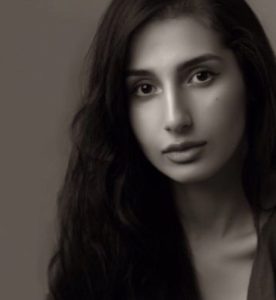 Etaf Rum, author of A Woman Is No Man, on her advice to young writers
Etaf Rum, author of A Woman Is No Man, on her advice to young writers
Find your truth and tell it, even if you’re afraid. Perhaps especially if you’re afraid.
Ada Limón, U.S. poet laureate, on using musical patterns in poetry
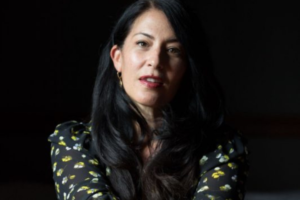 I do think of my poems as very musical. That’s one of my most cherished elements of prosody, the idiosyncratic sonic power of a poem. It’s what drew me to poetry in the first place. A song on the page with all the music there—the melody, the tempo, the harmony, the rhythm, the pitch. I rarely start out knowing where I’m going, instead it begins with a curiosity, a question, a need, an image, a pulse, a sound and I start to tug at it and see where it goes. The music begins to build as I work at the impulse of the poem, and from there, it becomes a matter of listening to the poem, its own music and not trying to force it. Sometimes the poems get larger, sometimes smaller, sometimes they only offer silence, but it’s not planned, it’s all an experiment as I go. It’s just a matter of listening rather than forcing.
I do think of my poems as very musical. That’s one of my most cherished elements of prosody, the idiosyncratic sonic power of a poem. It’s what drew me to poetry in the first place. A song on the page with all the music there—the melody, the tempo, the harmony, the rhythm, the pitch. I rarely start out knowing where I’m going, instead it begins with a curiosity, a question, a need, an image, a pulse, a sound and I start to tug at it and see where it goes. The music begins to build as I work at the impulse of the poem, and from there, it becomes a matter of listening to the poem, its own music and not trying to force it. Sometimes the poems get larger, sometimes smaller, sometimes they only offer silence, but it’s not planned, it’s all an experiment as I go. It’s just a matter of listening rather than forcing.
Ibram X. Kendi, author of How to Be an Antiracist, on maintaining momentum
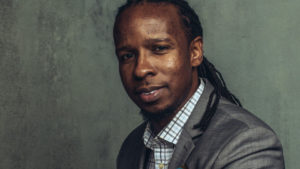 I tend to finish my research, clarify my thoughts, and organize my points before I begin writing books and essays. In other words, I judiciously prepare to write. If I haven’t completely finished my preparatory work, and I have to conduct research, clarify, and organize my thoughts while I write, then my writing is not as good. And when my writing is not as good, it is difficult to maintain momentum. It is difficult for me to remain inspired. Good writing inspires good writing.
I tend to finish my research, clarify my thoughts, and organize my points before I begin writing books and essays. In other words, I judiciously prepare to write. If I haven’t completely finished my preparatory work, and I have to conduct research, clarify, and organize my thoughts while I write, then my writing is not as good. And when my writing is not as good, it is difficult to maintain momentum. It is difficult for me to remain inspired. Good writing inspires good writing.
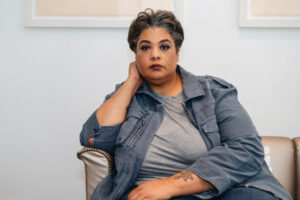 Roxane Gay, author of Bad Feminist, on the responsibility of a writer
Roxane Gay, author of Bad Feminist, on the responsibility of a writer
That is a difficult question. The responsibility of the writer is to write true, even when they’re telling lies.
Emily St. John Mandel, author of Sea of Tranquility, on the responsibility of a writer
 I believe that the responsibility of the writer is to write, but that being said, I believe we have responsibilities as human beings, and that these responsibilities are quite separate from the demands of our professions. I believe that my responsibility as a person is to try to conduct myself in an honorable manner, to try to help people who need help—whether on an individual basis or in the context of larger, overarching political causes—and to make every effort to generally make a positive impact on the world, and I believe I’d have that responsibility whether I were a writer, a plumber, or an astronaut.
I believe that the responsibility of the writer is to write, but that being said, I believe we have responsibilities as human beings, and that these responsibilities are quite separate from the demands of our professions. I believe that my responsibility as a person is to try to conduct myself in an honorable manner, to try to help people who need help—whether on an individual basis or in the context of larger, overarching political causes—and to make every effort to generally make a positive impact on the world, and I believe I’d have that responsibility whether I were a writer, a plumber, or an astronaut.
Louise Erdrich, author of The Night Watchman, on the responsibility of a writer
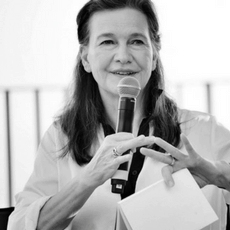 This question always throws me because I became a writer largely to evade responsibility. That said, I sometimes write opinion pieces because I feel compelled to speak out on issues of justice for Indigenous people. It is not my forte, really, but there is such a dearth of understanding about these issues. I do not enjoy writing opinion pieces or informative essays, but I guess you could say that every so often I become furiously engaged. In fiction, however, the story comes first and issues I care about have to be absorbed by the story in order to resonate with a reader. In that case, I follow the story wherever it leads.
This question always throws me because I became a writer largely to evade responsibility. That said, I sometimes write opinion pieces because I feel compelled to speak out on issues of justice for Indigenous people. It is not my forte, really, but there is such a dearth of understanding about these issues. I do not enjoy writing opinion pieces or informative essays, but I guess you could say that every so often I become furiously engaged. In fiction, however, the story comes first and issues I care about have to be absorbed by the story in order to resonate with a reader. In that case, I follow the story wherever it leads.
Andrew Solomon, past PEN President, on his advice to young writers
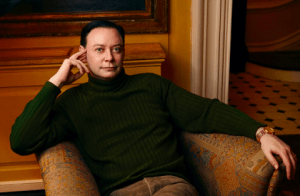 I want to take a moment to talk about the middle of things. The middle of things is less exciting than the beginning and less dramatic than the end. Middles can seem humdrum. Say that your current relationship to writing has been like falling in love: we exalt falling in love as the finest of all possible experiences. But the reason people marry and stay married is that the middle, when it can be made to work, far outclasses the beginning. Ask people who have been happily married for a decade or two whether they would like to start all over again, and you’ll find that they mostly wouldn’t, even if some are tempted by the occasional dalliance. It gets to be that way with your writing, too, as you get an ever-clearer sense of what interests you, what you can do, what you’d like to be able to do. Your mature work is the outcome of your early work: that there can be no meaningful middle without a meaningful beginning. But the middle is as joyous as enduring love.
I want to take a moment to talk about the middle of things. The middle of things is less exciting than the beginning and less dramatic than the end. Middles can seem humdrum. Say that your current relationship to writing has been like falling in love: we exalt falling in love as the finest of all possible experiences. But the reason people marry and stay married is that the middle, when it can be made to work, far outclasses the beginning. Ask people who have been happily married for a decade or two whether they would like to start all over again, and you’ll find that they mostly wouldn’t, even if some are tempted by the occasional dalliance. It gets to be that way with your writing, too, as you get an ever-clearer sense of what interests you, what you can do, what you’d like to be able to do. Your mature work is the outcome of your early work: that there can be no meaningful middle without a meaningful beginning. But the middle is as joyous as enduring love.
Juan Felipe Herrera, former U.S. Poet Laureate, on why he writes
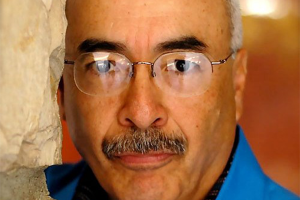 Poetry is where I live. It is where I discover and jot down insights that come to me and demand a home. As you know, poems have a habit of disappearing in a flash. What’s odd is that writing is more than writing—it provides something that moves and encourages personal, cultural, and universal forces to seek a new orientation, as the great Chinese essayist Lu Chi would suggest. It also bends time. With the poem, I can design a little corner for my families that have passed to live on, and for those brutalized by society to continue and be honored—to generate kindness.
Poetry is where I live. It is where I discover and jot down insights that come to me and demand a home. As you know, poems have a habit of disappearing in a flash. What’s odd is that writing is more than writing—it provides something that moves and encourages personal, cultural, and universal forces to seek a new orientation, as the great Chinese essayist Lu Chi would suggest. It also bends time. With the poem, I can design a little corner for my families that have passed to live on, and for those brutalized by society to continue and be honored—to generate kindness.
 Meg Medina, author of Merci Suarez Changes Gears, on the most daring thing she’s put into words
Meg Medina, author of Merci Suarez Changes Gears, on the most daring thing she’s put into words
Writing the lives of girls and young Latina women feels daring because there are so many forces that want to shut it down.
Lisa Tolin is the editorial director of PEN America and author of the picture book How to Be a Rock Star.






